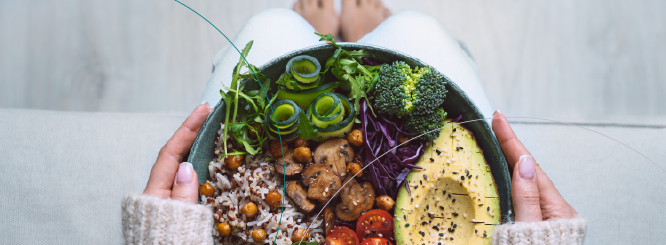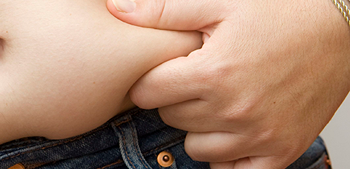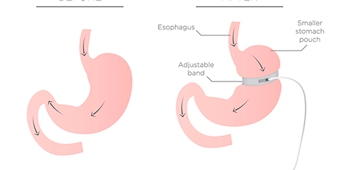
There are a variety of bariatric procedures that are designed to help patients address their specific health concerns and lose weight. The LIMARP® International Center of Excellence for Obesity successfully performs multiple types of bariatric surgery in the context of our integrative bariatric program.
Once our team determines that you are a candidate for bariatric surgery, we can determine the most effective type of surgery for you, like the gastric sleeve. This is a serious procedure, with the potential to change your life and our multidisciplinary team will do both physical and psychological evaluations to determine your possibility of undergoing surgery. As part of our integrative bariatric programs, you’ll also receive postoperative care, which includes a nutrition plan that ensures a successful recovery.
One of the many questions that arise during a patient’s recovery is if they can start eating solid food right after their surgery. The quick answer is no because the stomach, and your body in general, needs time to recover after such an invasive procedure.
This article will mainly focus on what the gastric sleeve is and the type of diet you will have to follow after the surgery, mainly focusing on when you can start eating solid food.
We’d like to highlight that the following information is general and that the case for each patient may vary significantly; for more detailed information and personal assistance, contact us and our team of doctors will be happy to answer any questions or doubts.
The Gastric Sleeve
First, we’d like to inform you on what gastric sleeve surgery consists of. The gastric sleeve procedure is a restrictive bariatric surgery that significantly reduces the size of your stomach and your appetite to encourage weight loss. It is an uncomplicated procedure with a shorter recovery time than others.
It physically restricts the amount of food you can eat by reducing the size of your stomach, limiting the production of ghrelin, which contributes to a reduction in appetite. This allows patients to feel satisfied with less food and helps them with portion control if it was recommended to them by a licensed dietitian.
This is the bariatric procedure for which experts have the most data and the most register of outcomes and results in long term follow-ups. It is also the most standardized procedure in the bariatric community. It’s been largely documented that complications due to gastric sleeve surgery are very low, and that it provides good control and great benefits over comorbidities associated with obesity.
Gastric sleeve surgery is considered a restrictive procedure because what it achieves is that it restricts the size of the stomach, preventing it from obtaining big portions of food.
This procedure does not interfere with the absorption of nutrients, though, because it does not involve any alteration to the digestive process, as it leaves the intestines intact.
The recovery from a gastrectomy is faster than other bariatric procedures. Patients may expect a postoperative stay of 1 to 2 days in the hospital’s recovery room, as well as a mandatory rest for four to six weeks. During the first weeks of recovery, the patient should follow a strict only-liquids diet, which will progressively move to purees and solids.
Postoperative Diet: When to Eat Solid Food
A postoperative diet is an essential part of any bariatric treatment. After bariatric surgery, the size of your stomach gets drastically reduced, and this diet will help your body get used to its new self, helping you get on track for your new, healthier, long-term eating habits.
Dr. Liza María Pompa González and the nutrition specialists on her team provide expert guidance and postoperative diet plans at our bariatric center to help patients heal and achieve successful and lasting results after their bariatric surgery. These plans are designed to fit your own specific needs, based on the specific procedure you have undergone (a gastric sleeve in this case), your medical history, and your progress within the treatment.
Our specialists provide thorough nutrition planning for patients as part of our integrative bariatric program. As a patient at LIMARP® International Center of Excellence for Obesity, you will receive specific, individualized plans for your pre and postoperative diets. These plans will vary based on the type of procedure you receive. Our postoperative diet plans schedule a gradual introduction of foods, from liquid to solid food, to allow your stomach ample time to heal properly, which reduces your risk of future complications. Allowing your stomach to heal also increases your odds of achieving your weight loss goals and keeping the weight off in the long-term.
Postoperative diet plans are essential for all bariatric surgery patients. Those individuals who undergo restrictive procedures must learn to choose foods and supplements that ensure they receive the nutrients they need until they can eat and process solid food. With our tailored plans, all patients can discover more options that will benefit their health and unique situation.
There are different stages you must go through before your body is ready to process solid food and you must abide by what your doctor suggests to avoid any postoperative complications. Following the gastric sleeve, your diet will strictly consist of liquids throughout the first week of recovery; this includes water, but also chicken, beef or vegetable broth, popsicles, and gelatin. You may only drink two to three ounces of liquid at a time and you must drink them very slowly. When your program allows for it, you may begin drinking non-clear liquids for one week.
There are two more phases before you can eat solid food, which consist of adding pureed and soft food to your diet. As your body becomes more tolerant, you may start introducing pureed foods. You will eat them exclusively for three to four full weeks. Pureed foods have a consistency similar to baby food. You may also have protein shakes during this time. After three to four weeks of pureed foods, you may begin to introduce soft foods. You may eat a combination of pureed and soft foods for about two weeks.
Finally, after six to eight weeks following your gastric sleeve procedure, you’ll be able to eat healthy, solid food. You should continue cutting any solid food into small, easily digestible bites. Some solid food may be hard to eat right away, such as spicy or extremely crunchy foods.
However, you may be able to incorporate them back into your diet at a later time. It is important to continue eating small meals and to make healthy choices that focus on protein, vegetables, and fruits.
Although you’ll be able to eat many different types of food after your recovery, it is still important to remember that you should still avoid certain foods that can lead you on a wrong track from your weight loss goals and away from healthy eating habits, like high-calorie, high-fat and high-carbohydrate foods, junk foods, sugary drinks, and alcohol.
Contact Us to Learn More
If you’re interested in what your diet would look like after getting the gastric sleeve, schedule an appointment with one of our doctors. We can help determine the right treatment for you. Contact us online anytime or give us a call at (619) 373-0229.


